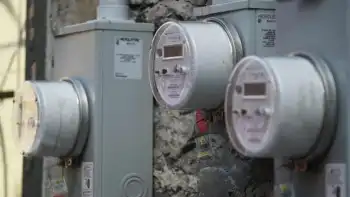GM, Nissan compete for best EV deal
- Just over a decade ago, electric cars were expensive niche vehicles for gadget lovers and celebrities. Now, Nissan and General Motors are competing to sell the most affordable electric car to middle-class America.
The contest escalated when GM announced it would start the Chevrolet Volt at $41,000. While it costs $8,000 more than the base price of Nissan's Leaf electric hatchback, GM is matching the $349-per-month lease deal that Nissan is offering on its car. Nissan Motor Co. countered by matching the Volt's eight-year, 100,000-mile battery warranty.
Both vehicles will cost more than a comparable gasoline-engine car when they hit showrooms this fall. But their lease deals are competitive with regular cars. That reflects the overall decline in the cost of the cars' technology over the past decade. Even if the automakers have to eat some of the costs, they can still afford to keep the Volt and Leaf within many families' budgets.
The average U.S. new-car payment is about $450, so most new-car buyers can afford a $350 lease, especially when they factor in what they won't pay for gas, said Jesse Toprak, vice president of industry trends at the car pricing website TrueCar.com. General Motors Co. said it would cost about $1.50 worth of electricity to fully recharge the Volt each night.
"The middle-income family in Ohio cannot afford $41,000 plus tax to get a Volt, Toprak said. "But $350 a month is within reach."
Lease and base sticker prices for both models are far lower than earlier electric cars. GM's EV-1, the first widely available electric car, was leased for $477 a month in 1996.
While celebrities such as Mel Gibson and Ed Begley Jr. touted the car's green appeal, GM had trouble getting most people to take the two-seat cars, which had a sticker price of roughly $44,000. The project was canceled after four years and only about 800 leases. One of the few broadly available electrics now on the road is the Tesla Roadster. But it costs $109,000, well out of reach of mainstream buyers.
For those who buy the Leaf or Volt, the two cars also are eligible for a federal tax credit that will cut their prices by $7,500. The Volt's price would fall to $33,500 while the Leaf's would drop to $25,280 — from $32,780. Some states, such as California, Georgia and Oregon, offer additional tax breaks that will lower the price further. The federal government will phase out the credits when each manufacturer sells 200,000 electric cars.
GM expects to sell 10,000 Volts in the first year and Nissan said it already has 17,000 orders for the Leaf.
Both automakers are also vying to show their cars offer the best features.
The Volt, a four-door sedan which goes on sale in November, runs on battery power for up to 40 miles but has a small gasoline engine to generate electricity once the battery runs down. The gas engine can generate power to run the car another 300 miles.
Nissan's Leaf, which goes on sale in December, can go up to 100 miles on a charge. The car doesn't have a gas engine and must be recharged once its battery is depleted. Nissan spokeswoman Katherine Zachary said the Leaf itself emits no pollution and is designed for people whose daily travels are within its range.
GM says the Volt's big selling point is that drivers don't have to worry about the battery going dead during trips. This so-called "range anxiety" dogged the EV-1.
To give the car wider appeal, drivers must know "they're not going to get stranded," said Joel Ewanick, GM vice president of U.S. marketing.
GM's $350-a-month lease deal is for 36 months with $2,500 down. Nissan's lease plan is $349 a month over the same period with $1,995 down. Toprak said the Volt lease will be heavily subsidized by GM as a way to get people into Chevrolet showrooms.
Nissan also said Tuesday it would sell 500 Leafs to Enterprise Rent-A-Car starting in January in an effort to get more people familiar with the car.
Both Nissan and GM say the base models of their cars will have just about everything that people want as standard equipment, with few options. Both have navigation, multiple air bag and premium audio systems standard, for example. Options for both include backup monitoring cameras. The Volt has leather seats available, while the Leaf has a solar-panel spoiler that generates electricity.
GM will sell the Volt first in California, then make it available in New York, New Jersey, Connecticut, Washington, D.C., Michigan and Texas. Orders are being taken at 600 Chevrolet dealers in those states. The car will be sold nationwide in 12 to 18 months.
Nissan will start selling the Leaf in California, Washington, Oregon, Arizona and Tennessee in December. The Leaf will go on sale in other markets through 2011 and be available nationwide by the end of next year.
Related News

Residential electricity use up as overall consumption drops during pandemic
OTTAWA - Residential electricity use is up in Ontario and Quebec since the start of the pandemic even as overall consumption rates have gone down, according to hydro utilities in the two provinces.
According to Hydro-Québec, the province's residential electricity consumption between March and July 2020 was 4.27 per cent higher than during the same time last year.
In Ontario, meanwhile, the Independent Electricity System Operator said consumption increased by 15 per cent.
Despite the overall provincial increases, certain regions reported differences in residential usage: Hydro Ottawa, for example, said via email that residential electricity consumption in Canada's capital increased by approximately four…




